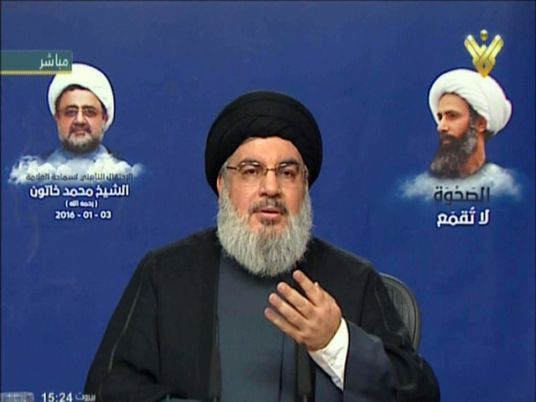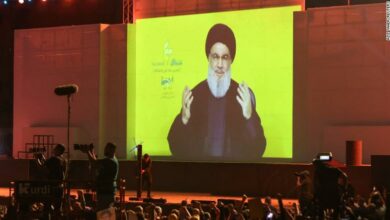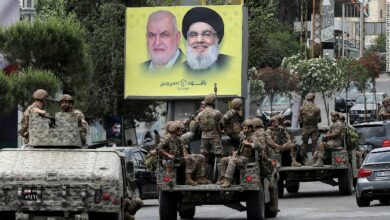
A leading Arab satellite operator cut transmission of Hezbollah's television channel Al-Manar on Wednesday amid rising tensions between the Lebanese Shiite group's backer Iran and Sunni powerhouse Saudi Arabia.
Officials at both Al-Manar and Cairo-based Nilesat confirmed the transmission had been cut over accusations the channel violated its contract by airing programmes promoting sectarian divisions.
"This is a political decision, not an industry decision. Al-Manar has nothing to do with sectarian strife," the channel's general manager Ibrahim Farhat told AFP, calling the move "unjust and arbitrary".
"This is part of the political problem in the region, that they're taking out on the media," Farhat said.
Asked about the decision to cut Al-Manar's transmission, a senior Nilesat official said channels "must abide by not airing any violent or racist content, or provoking sectarian strife."
"No other channels have violated the contract," he told AFP, in response to a question on whether any other Lebanese channels would be affected.
The cut came ahead of an expected visit this week by Saudi King Salman to Egypt, which operates the Nilesat satellite.
Last month, Gulf Arab states led by Saudi Arabia blacklisted Hezbollah, the leading force in Lebanon's governing bloc, as a "terrorist" organisation.
The kingdom halted a US$3 billion programme of military aid to Lebanon to protest what it said was "the stranglehold of Hezbollah on the state".
It also urged its citizens to leave Lebanon and avoid travelling there.
Al-Manar said on Twitter that it could still be watched via a Russian satellite or online.
The moves against Hezbollah come amid a spike in tensions between its backer Tehran and Riyadh this year after demonstrators stormed the kingdom's missions in Iran following Saudi Arabia's execution of a Shiite cleric.
The kingdom cut diplomatic ties with Iran and led Arab allies in a series of retaliatory measures against it.
While Saudi Arabia is the main supporter of Syria's Sunni-led rebels, Hezbollah is fighting alongside President Bashar al-Assad's troops, who are backed by Iranian military advisers.




